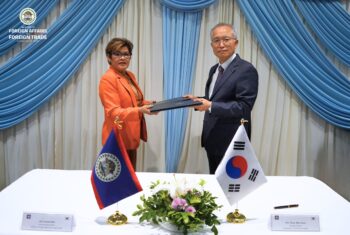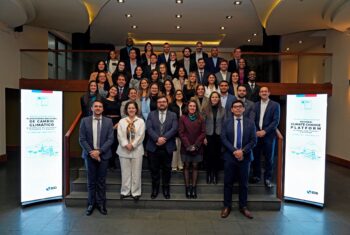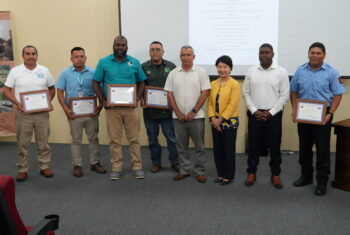Belmopan, July 22, 2022. 6:30 p.m.
On July 21, 2022, as a result of surveillance conducted in the United States of America, the New York State Department of Health reported the identification of a case of paralytic poliomyelitis in an unvaccinated individual in Rockland County, a vaccine-derived poliovirus type 2 (VDPV2).
Polio is a disease of the central nervous system caused by three closely related polioviruses ─ types 1, 2 and 3 ─ and can cause paralytic poliomyelitis. It can sometimes spread in airborne droplets through close contact with infected persons (sneezing or coughing) or through exposure to throat and nose secretions.
In 1994, the Americas became the first region in the world to be certified polio-free by the World Health Organization. The early detection of cases through the surveillance of acute flaccid paralysis in children under 15 years of age and maintaining high polio vaccination coverage are key to this achievement. No cases of wild poliovirus have been detected in the countries and territories of the Region of the Americas in over 30 years.
In Belize, the last case of polio was diagnosed in 1981. Belize has managed to achieve and maintain over 95.0 % of anti-polio vaccination coverage except for the last two years due to the COVID-19 pandemic where the coverage has decreased to 78.8% in 2020 and 83.4 % in 2021.
Unvaccinated persons may acquire the infection when in contact with the virus. It is spread seven to 10 days before and after experiencing signs and symptoms of the disease, which include fever, diarrhea, sore throat, upset stomach, headache, pain or stiffness in the neck, back and legs. There is no treatment for the disease. Immunization is the only protection against polio infection.
The public is advised to review the children’s immunization status and if not fully vaccinated, vaccines are available at health facilities and during mobile clinics. Detection and reporting of cases of any acute flaccid paralysis in children under 15 years of age to the health authorities are of utmost importance for early investigation and detection of cases.
Ends
For more information, contact:
Dr. Natalia Largaespada Beer
Technical Advisor, Maternal & Child Health Unit
Ministry of Health & Wellness
nlargaespada@gmail.com
822-2325



